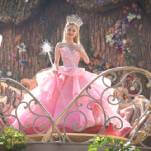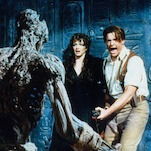With an afterward by Richard Dawkins, A Universe From Nothing: Why There Is Something Rather Than Nothing is solidly in the New Atheism camp, a cosmologist’s version of Dawkins’ The Blind Watchmaker. Krauss takes several jabs at theologians who insist on fitting science into their preconceived notions of how the universe should work, when they aren’t ignoring science altogether.
Krauss is a veteran science writer with an extensive bibliography, and he does a commendable job of providing groundwork for cosmology novices on how scientists are able to measure things like the universe’s age, mass, and energy. The problem is how little is still known about his subject matter. Scientists have discovered that most of the energy in the universe is contained in empty space, a force counteracting gravity that will eventually push everything in the universe apart. But why this is the case is one of the biggest mysteries in physics. The inflation of the universe isn’t just expanding our universe, but is likely responsible for creating a multitude of universes that we can’t see. Accounting for that, Krauss’ thesis is that anything that isn’t impossible has happened somewhere—including the generation of a universe with stars, planets, and people, where nothing existed before.
Krauss is at his best when he stands back and talks about the manifestations of the science he’s discussing. He grapples with the fact that the way the universe works seems like such a fortunate coincidence. He eventually concludes that if it didn’t work that way, life as we know it couldn’t exist, so we wouldn’t be around to ponder the workings. In a particularly poignant passage, he looks forward to how the universe will appear in billions of years, as the galaxies drift apart. Any astronomers living then will be unable to tell that their galaxies isn’t alone in the universe, which raises the question of what truths time has already made impossible to determine.
A Universe From Nothing isn’t going to win any converts, nor is it particularly useful for debating with atheists, as the science sounds so fanciful. But as bizarre as the spontaneous creation and destruction of particles might seem, Krauss argues that there’s scientific proof of the phenomenon, which makes it better than any creation myth.








































